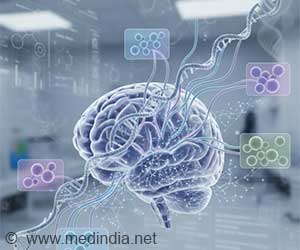A new study shows that an inhibitor of 12/15-lipoxygenase is found to reverse cognitive decline and neuropathology in Alzheimer’s disease patients.
- A research team from Temple University has shown that 12/15-lipoxygenase is elevated in Alzheimer’s disease patients.
- The study used an inhibitor to lower the level of 12/15-lipoxygenase in Alzheimer’s disease patients.
- There was reversal of cognitive decline after the use of an inhibitor of 12/15-lipoxygenase
TOP INSIGHT
Cognitive decline that cripples Alzheimer’s patients can be reversed using inhibitor of 12/15-lipoxygenase
Dr. John Krystal who is the editor of biological psychiatry said that this was an exciting study as the nerve cells were taught to digest the toxic protein which would, otherwise, cause cell death.
In the study, a triple transgenic mouse model was used with Alzheimer’s disease-like phenotype which included cognitive decline. The study first author Antonio Di Meco had shown earlier that 12/15-lipoxygenase inhibitor PD146176 could stop the development of decline in cognitive ability in mice.
In order to understand the effects of this inhibitor in the real world scenario, the study authors allowed the mice to grow for a period of one year. Cognitive impairment and neuropathology were established in the mice before the inhibitors 12/15-lipoxygenase inhibitor PD146176 were injected into the mice.
Dr. Pratico said that their studies showed for the first time that selective inhibition of the 12/15-lipoxygenase enzyme rescued the entire Alzheimer’s disease-like phenotype.
The mechanism of action was autophagy where the body’s natural killer cells were activated by the inhibition of 12/15-lipoxygenase. Activation of these natural killer cells present in the body leads to a reduction in the levels of tau, showcasing that the inhibitor worked by re-activating neuronal autophagy machinery which would aid in the build-up of tau in the cells.
Dr. Pratico said that the findings of the study have important translational value and that this is a novel method of treatment of Alzheimer’s disease.
Alzheimer’s Disease
Alzheimer's disease is a neurodegenerative disease and is the most common form of dementia. It is characterized by memory loss as well as a decline in intellectual abilities, which interfere with the quality of life being led by the patient.The mental decline, is normally associated with aging. However, Alzheimer's is not associated with aging-related mental decline. The greatest risk factor that is associated with Alzheimer’s disease is advanced aging with the majority of people with this disease condition over the age of 65 years.
A few people are found to have early onset Alzheimer’s disease that occurs when the individual is in the 40s or 50s but most cases of Alzheimer’s disease is found among people over 60 years of age. It is a progressive disease and the symptoms of dementia worsen over a period of time. In the early stages of Alzheimer’s disease, there is a mild loss of memory but as the disease progresses; there is an inability to carry on a conversation along with difficulty in responding to the environment.
This neurodegenerative disease is the sixth leading cause of death in the U.S. People with the disease condition can live for 8 years without showing any noticeable symptoms but the survival of the patient varies from 4 to 20 years, based on age and health conditions.
The decline in cognitive abilities cripple patients with Alzheimer’s and leads to a very dependent life. The patients will be unable to follow recipes or even perform simple tasks on their own, requiring continuous assistance.
Previous studies have shown that interventions could slow or prevent further mental decline but the current study has shown a reversal of mental decline, which is a definite step in the treatment of Alzheimer’s disease.
References:
- Antonio Di Meco, Jian-Guo Li, Benjamin E. Blass, Magid Abou-Gharbia, Elisabetta Lauretti, Domenico Pratic�. 12/15-Lipoxygenase Inhibition Reverses Cognitive Impairment, Brain Amyloidosis, and Tau Pathology by Stimulating Autophagy in Aged Triple Transgenic Mice. Biological Psychiatry, (2017); 81 (2): 92DOI: 10.1016/j.biopsych.2016.05.023
- What Is Alzheimer's? - (http://www.alz.org/alzheimers_disease_what_is_alzheimers.asp)
Source-Medindia
 MEDINDIA
MEDINDIA





 Email
Email







